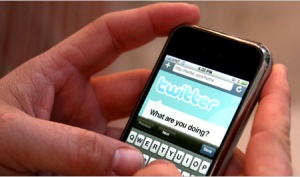 Thanksgiving has been recently determined as America’s favorite holiday. This data was gathered by tweets and status updates from popular social networks Twitter and Facebook. Many users begin 30 days of thanks in November and express sincere, and sometimes humorously random reasons they are thankful in their life. We live in a a very “connected” world where it doesn’t take but a few clicks to find out how our friends and acquaintances are doing… or do we really know at all?
Thanksgiving has been recently determined as America’s favorite holiday. This data was gathered by tweets and status updates from popular social networks Twitter and Facebook. Many users begin 30 days of thanks in November and express sincere, and sometimes humorously random reasons they are thankful in their life. We live in a a very “connected” world where it doesn’t take but a few clicks to find out how our friends and acquaintances are doing… or do we really know at all?
Just a few days ago, On Saturday, December 1, Jovan Belcher, a linebacker for the Kansas City Chiefs, shot and killed his girlfriend and then committed suicide. On Sunday, December 2, the Kansas City Chiefs won their game against the Carolina Panthers in what Panthers coach Ron Rivera called “an inspired game.” After the game Brady Quinn, the Kansas City quarterback, spoke to the press about the game and this horrific tragedy. More specifically, he was asked to speak about the emotion he felt after the game.
“It was tough. I think it was an eerie feeling after a win because you don’t think that you can win in this situation. The one thing people can hopefully try to take away, I guess, is the relationships they have with people. I know when it happened, I was sitting and, in my head, thinking what I could have done differently. When you ask someone how they are doing, do you really mean it? When you answer someone back how you are doing, are you really telling the truth? We live in a society of social networks, with Twitter pages and Facebook, and that’s fine, but we have contact with our work associates, our family, our friends, and it seems like half the time we are more preoccupied with our phone and other things going on instead of the actual relationships that we have right in front of us. Hopefully people can learn from this and try to actually help if someone is battling something deeper on the inside than what they are revealing on a day-to-day basis.” Said Quinn.
Quinn’s words are a reminder of the absence of direct communication between humans in this digital generation. We’ve gone from speaking face to face to phone calls, from phone calls to text messages, from text messages to status updates or tweets… And the digital barrier goes on and on. That’s not to say that social networking and using devices such as iPhones, iPads and computers to stay connected don’t have a place in our lives, because they certainly do, and they do help us stay connected. But they can’t, shouldn’t and don’t replace the in-person interactions that are so valuable to the relationships in our lives. That’s exactly what Brady Quinn reminded us about.
When he asks: “When you ask someone how they are doing, do you really mean it?” he challenges each of us to examine the sincerity with which we engage people. His horror and shock at what has happened with a teammate and friend has caused him to ask us all to reassess what is important in our own relationships in our lives.
The overall question to bring home is “What can we do to be better friends to those in our lives whom we call our friends and loved ones?” The lesson is that we should all be more attentive to the people whose lives are intertwined with ours, through our families or our friends or our places of work. We enter and exit this world alone, but in between those moments, we are part of a broader and more complex fabric that provides us with support and commands it from us as well.
We should take the time to turn off and put down those devices and focus on the people in our lives sincerely. “Liking” or “retweeting” their words or photographs on social networking is nowhere near the same as just telling someone what you’re thinking or how you feel. 140 characters or less can never replace the human voice. It’s quick, convenient, and very trendy… But it also builds a digital wall around you that can take much work to dismantle. It’s become both a blessing and a curse. Don’t choose the latter. This is something we should consider the next time we’re more worried about interacting with someone who isn’t in the room than someone who is.